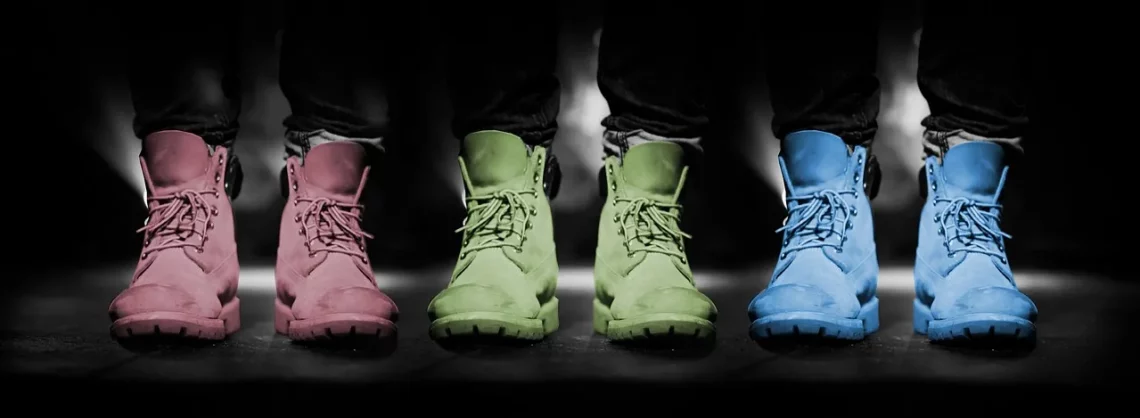
The Best Bunion Shoes for Men: Comfort and Style Combined
Finding the right footwear can significantly improve your comfort, especially when dealing with foot conditions like bunions. Bunions, which are bony protrusions at the base of the big toe, can cause discomfort and pain, making it crucial to select shoes that not only alleviate pressure but also provide adequate support. Many men find themselves searching for shoes that can accommodate their foot shape while still looking fashionable. The right pair can make all the difference, whether you’re heading to the office, running errands, or enjoying a casual outing.
Moreover, the footwear industry has evolved to cater to various needs, including those who experience discomfort from bunions. With a wide range of styles available, it’s possible to find shoes that offer both comfort and aesthetic appeal. From loafers to athletic shoes, there are options that prioritize foot health without compromising on style. Understanding the features to look for in bunion-friendly shoes can empower individuals to make informed choices that enhance their daily comfort and contribute to their overall foot health.
In this article, we will explore some essential factors to consider when choosing the best bunion shoes for men, ensuring that comfort and style go hand in hand.
Features to Look for in Bunion Shoes
When searching for shoes that can accommodate bunions, several key features should be taken into consideration. Understanding these features can guide you in selecting the right pair that meets your needs.
First and foremost, the width of the shoe is critical. A wider toe box allows for ample space for the toes, minimizing pressure on the bunion. Shoes that are too narrow can exacerbate discomfort and lead to further complications. Look for brands that specifically design their shoes with a wider fit option.
Arch support is another essential feature. Good arch support helps distribute weight evenly across the foot, reducing strain on the bunion. Shoes with built-in orthotic insoles or removable insoles offer the flexibility to customize the level of support based on individual needs. This is particularly beneficial for those who may require additional arch support or cushioning.
Additionally, consider the material of the shoe. Soft, breathable materials can enhance comfort and help reduce friction against the foot. Leather and mesh are popular choices, as they tend to mold to the shape of the foot over time, providing a personalized fit. It’s also wise to choose shoes with adequate cushioning. A well-padded insole can absorb impact and provide comfort throughout the day, making a significant difference for those on their feet for extended periods.
Finally, the shoe’s design should not be overlooked. Style matters, and many brands are now creating fashionable options that also cater to comfort. Look for shoes that blend functionality with aesthetics, ensuring that you feel confident in your footwear choice without sacrificing comfort.
Top Recommendations for Bunion-Friendly Shoes
Selecting the right shoes can be a daunting task, especially with so many options available. Here are some top recommendations that strike a balance between comfort and style, making them ideal choices for men dealing with bunions.
1. **New Balance Fresh Foam 1080v11**: Known for its plush cushioning and support, this running shoe is a favorite among those with foot issues. The Fresh Foam midsole adapts to your foot’s shape, providing a comfortable fit. The wide toe box allows for natural toe splay, making it a great option for bunion sufferers.
2. **Brooks Ghost 14**: This neutral running shoe offers excellent cushioning and support. The BioMoGo DNA midsole provides adaptive cushioning, while the 3D Fit Print upper ensures a secure fit without putting pressure on the bunion. The Ghost 14 is perfect for both running and casual wear.
3. **Clarks Wave 2.0**: A casual shoe that blends style with comfort, the Clarks Wave 2.0 features a cushioned footbed and a wide toe box. Its lightweight design makes it suitable for everyday wear, whether you’re at work or out with friends.
4. **Skechers Go Walk**: Ideal for those who prioritize comfort, the Skechers Go Walk shoes feature a soft, breathable upper and a cushioned insole. These slip-on shoes are easy to wear and provide ample support for all-day comfort.
5. **Ecco Biom 2.1**: For a more formal look, the Ecco Biom 2.1 offers a stylish option without sacrificing comfort. This shoe features a wide toe box and excellent arch support, making it perfect for office wear or formal events.
Each of these options combines thoughtful design with functionality, ensuring that your feet remain comfortable while still looking stylish. When choosing the right pair, consider your specific needs, including the type of activities you will be engaging in, and how the shoes fit into your overall wardrobe.
Choosing the Right Fit: Sizing and Comfort
Finding the right fit is crucial when shopping for shoes, particularly for those with bunions. An improper fit can lead to increased discomfort and exacerbate existing foot problems. Here are some tips to ensure you select the best size for your bunion-friendly shoes.
Firstly, it’s essential to measure your feet correctly. Many people underestimate the importance of foot measurement, as the size can vary between different brands and styles. Stand on a piece of paper and trace your foot, measuring both the length and width. This will give you a clear idea of your foot size and the space you need for comfort.
When trying on shoes, it’s best to do so at the end of the day when your feet are slightly swollen. This ensures that the shoes fit comfortably during times when your feet might expand. Always try on both shoes, as one foot may be larger than the other. Make sure there is enough room in the toe box, allowing your toes to move freely without feeling cramped.
Walk around in the shoes for a few minutes to gauge comfort. Pay attention to any pressure points, particularly around the bunion area, and ensure there’s no pinching or rubbing. The shoe should feel snug but not overly tight, providing adequate support without constriction.
Lastly, consider the return policy when purchasing shoes, especially online. Being able to return or exchange a pair that doesn’t fit properly is essential for ensuring you find the perfect match for your needs.
Maintaining Foot Health Beyond Shoes
While selecting the right footwear is vital for managing bunions, maintaining overall foot health is equally important. There are several practices and lifestyle changes that can contribute to healthier feet and reduce the risk of bunion development or worsening.
Regular foot exercises can help strengthen the muscles around the toes and improve flexibility. Simple exercises, such as toe stretches, ankle rotations, and picking up small objects with your toes, can enhance foot function and alleviate discomfort. Incorporating these exercises into your daily routine can promote better foot health.
Additionally, maintaining a healthy weight can reduce the pressure on your feet. Excess weight can exacerbate bunion pain, so adopting a balanced diet and engaging in regular physical activity can be beneficial. Activities that promote low-impact exertion, such as swimming or cycling, can help maintain fitness without putting undue stress on your feet.
Lastly, consider consulting with a podiatrist for personalized advice. They can provide insights into the best practices for foot care, recommend specific exercises, and suggest orthotic solutions if necessary. Regular foot check-ups can also help detect any issues early on, ensuring that you can address them before they become more serious.
Remember, while the right pair of shoes can make a significant difference, a holistic approach to foot health is essential for long-term comfort and well-being.
**Disclaimer**: This article is for informational purposes only and does not constitute medical advice. If you have any health concerns or questions regarding your foot condition, please consult a qualified healthcare professional.




